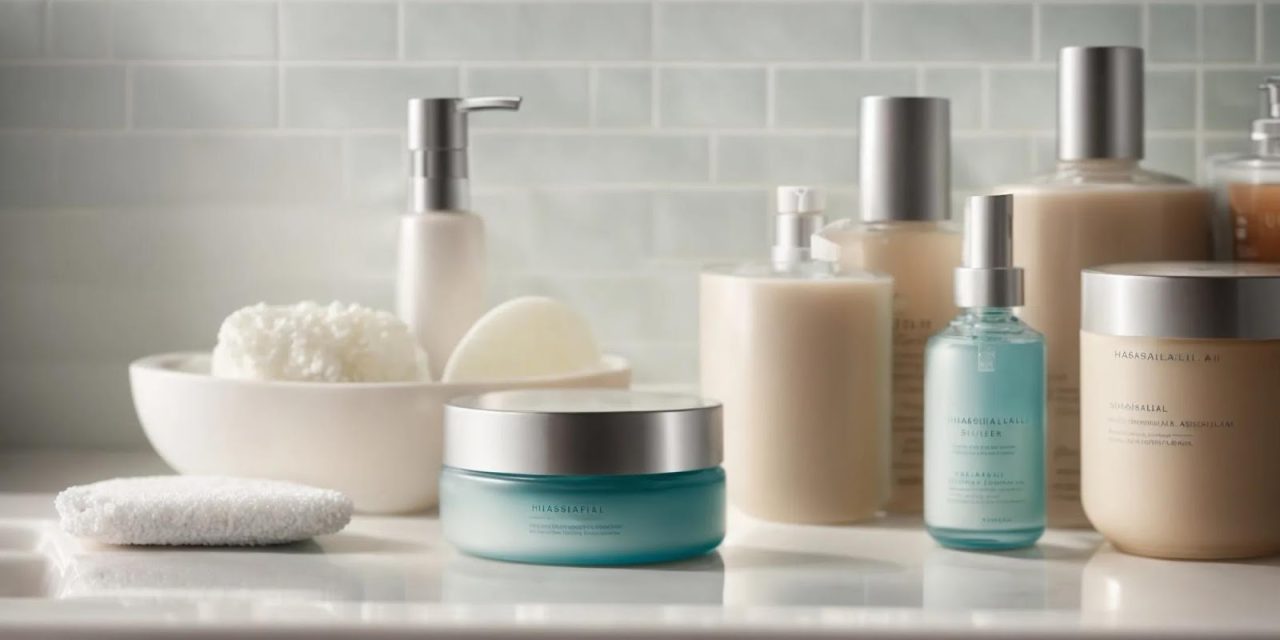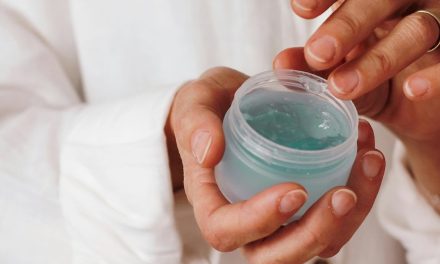Nearly 70% of people experience dry skin at some point, but the maze of advice out there can leave you scratching your head, wondering, “If you have dry skin what do you do?” Let’s cut through the noise. This post is your no-nonsense guide to soothing that parched skin once and for all. We’ll dive into practical steps, backed by dermatologists, to hydrate and nourish your skin without resorting to complicated routines or breaking the bank. From understanding the root causes to selecting the right moisturizers and lifestyle changes, we’re here to turn that dry spell into a wave of relief. Get ready to embrace soft, supple skin with tips that are as simple as they are effective.
Key Takeaways
- Recognize the importance of understanding your skin type, especially if you’re dealing with dry skin, to apply the most effective care and treatment methods.
- Implement dermatologist-approved tips such as using gentle, hydrating cleansers and moisturizers specifically designed for dry skin to maintain skin health.
- Establish a daily skincare routine that includes hydrating products and avoid over-washing or using hot water, which can further dry out the skin.
- Make lifestyle adjustments like using a humidifier in dry climates and staying hydrated by drinking plenty of water to support your skin’s hydration levels from the inside out.
- Explore home remedies for dry skin relief, such as oatmeal baths and applying natural oils, but ensure they are safe and suitable for your skin type to avoid adverse reactions.
- Seek professional treatments for persistent dry skin issues, and don’t hesitate to consult a dermatologist for personalized advice and advanced care options when over-the-counter products aren’t enough.
Understanding Dry Skin
Causes and Symptoms
Dry skin, a common condition, often stems from environmental factors such as cold weather, low humidity, and excessive washing with harsh soaps. Genetics also play a crucial role in one’s propensity to develop dry skin. Symptoms vary in severity but typically include flakiness, redness, and a sensation of tightness. In severe cases, the skin may crack or bleed, indicating the need for more intensive care.
The impact of environmental conditions cannot be overstated. During winter, the combination of cold air outside and heated interiors can strip the skin of its natural moisture. Similarly, hot showers and baths, while comforting, can exacerbate skin dryness. Recognizing these symptoms early on is key to preventing further damage and discomfort.
When to See a Dermatologist
Not all dry skin issues can be resolved with over-the-counter moisturizers. Persistent dryness, especially when accompanied by itching or bleeding, signals the need for a dermatologist’s expertise. Early consultation can prevent complications such as infections or eczema flare-ups.
It’s essential to distinguish between simple dry skin and conditions that mimic its appearance but require different treatments. For instance, psoriasis and eczema present with similar dryness and flakiness but are treated with specific medications and therapies. Ignoring these signs or misdiagnosing oneself can lead to unnecessary suffering.
Dermatologist-Approved Tips
Moisturizing Essentials
For those grappling with dry skin, daily moisturizing is non-negotiable. Dermatologists urge the use of creams rich in hyaluronic acid and glycerin. These ingredients lock in moisture, offering deep hydration. The best times for moisture application are right after showering and before bedtime. This ensures optimal absorption when your skin is most receptive.
Moisturizers act as a barrier, protecting the skin from environmental stressors. They also repair the skin’s natural barrier. Consistent use can transform dry, flaky skin into a smoother, more radiant complexion.
Gentle Skin Care
Choosing the right cleanser is crucial for dry skin management. Opt for mild, fragrance-free options. These cleansers clean without stripping away essential oils. After cleansing, always pat the skin gently with a towel. Avoid rubbing, as it can further irritate and dry out the skin.
Harsh exfoliants are a big no-no for dry skin. They can remove too much of the skin’s natural oil, leading to increased dryness and irritation. Instead, select gentle exfoliating products designed specifically for sensitive or dry skin types.
Humidifier Benefits
In drier climates or heated indoor environments, a humidifier can be a game-changer. It adds necessary moisture back into the air, which helps hydrate the skin indirectly. To reap the full benefits, maintain humidity levels between 30% and 50%.
Place humidifiers in areas you frequent, like bedrooms or living spaces, to ensure you’re constantly surrounded by moist air. This simple addition can make a significant difference in your skin’s health and appearance.
Sun Protection
Sunscreen isn’t just for summer days at the beach; it’s a year-round necessity, especially for those with dry skin. UV exposure can exacerbate dryness and lead to premature aging. Use sunscreens with at least SPF 30 and reapply every two hours when outdoors.
Beyond sunscreen, wearing hats and protective clothing can shield your skin from harmful rays. These extra measures help maintain your skin’s moisture levels and overall health.
Daily Skin Care Routine
Cleansing Techniques
Cleansing is a critical step in any skin care routine, especially for those with dry skin. It’s vital to cleanse no more than twice a day to avoid exacerbating dryness. Using lukewarm water is key as hot water can strip the skin of its natural oils, leading to further dryness.
Select gentle, hydrating cleansers that are designed to preserve the skin’s moisture barrier. These products work to clean without removing essential moisture, making them ideal for dry skin types. Avoid harsh soaps or facial cleansers with high alcohol content, as these can be overly drying.
Hydration Tips
Hydrating from the inside out is equally important for managing dry skin. Drinking plenty of water throughout the day can significantly improve your skin’s hydration levels. Aim for at least 8 glasses a day to see a noticeable difference in your skin’s appearance and texture.
Incorporate foods high in water content into your diet, such as cucumbers, tomatoes, and watermelon. These can help boost your overall hydration. On the other hand, it’s crucial to limit intake of dehydrating beverages like alcohol and caffeine. They can contribute to dryness by drawing moisture away from the skin.
Night Care
Nighttime is an opportunity for deep skin repair and rejuvenation. Applying a heavier moisturizer before bed can provide lasting hydration and support the skin’s natural repair processes. Look for night creams rich in hyaluronic acid or ceramides for best results.
Consider using overnight hydrating masks once or twice a week for an intensive moisture treatment. These masks are designed to deeply hydrate and nourish the skin while you sleep, leading to a softer, more supple complexion in the morning.
Changing your pillowcase material to silk or satin can also make a difference. These materials are less absorbent than cotton, meaning they won’t draw moisture away from your skin throughout the night.
Lifestyle Adjustments for Dry Skin
Diet and Hydration
A balanced diet plays a crucial role in maintaining healthy skin. Foods rich in omega-3 fatty acids, like salmon, flaxseeds, and walnuts, nourish the skin from within. They help in managing inflammation and dryness. Antioxidants found in berries, nuts, and green leafy vegetables protect the skin cells from damage.
Drinking plenty of water keeps the body and skin hydrated. It’s also wise to limit intake of high-sodium foods. Such foods can dehydrate the body, worsening dry skin conditions.
Clothing Choices
The right clothing can prevent further irritation of dry skin. Fabrics like cotton and silk allow the skin to breathe, reducing irritation. It’s beneficial to avoid tight clothing that rubs against the skin. Such friction can exacerbate dryness.
For individuals with sensitive skin, using hypoallergenic laundry detergents is a must. These products minimize the risk of skin reactions and contribute to skin comfort.
Home Humidity
Maintaining an ideal indoor humidity level is key to preventing dry skin. The recommended humidity level is between 30% and 50%. A hygrometer can help monitor these levels accurately.
To naturally increase humidity at home, consider placing bowls of water in various rooms or investing in indoor plants. Both methods add moisture to the air, creating a more skin-friendly environment.
Home Remedies for Dry Skin
Natural Moisturizers
Natural oils, like coconut or olive oil, offer deep hydration for dry skin. They’re easily absorbed and can replace lost moisture effectively. Shea butter and aloe vera also stand out for their ability to retain moisture. These ingredients not only hydrate but also form a protective layer on the skin.
However, it’s important to note that natural products can sometimes cause reactions. Individuals with sensitive skin should patch test before full application. This ensures safety against potential allergens.
DIY Masks
Creating homemade hydrating masks is a beneficial and enjoyable way to care for dry skin. Ingredients like avocado, rich in fats, and honey, known for its humectant properties, can deeply nourish the skin. These natural components work together to enhance skin’s moisture levels.
For best results, applying DIY masks once or twice a week is recommended. This frequency helps maintain optimal hydration without overburdening the skin.
Oil Treatments
Incorporating natural oils into a nightly skincare routine can significantly improve dry skin conditions. Oils such as argan and jojoba are particularly beneficial due to their similar composition to the skin’s natural sebum. This similarity allows them to penetrate deeply and lock in moisture effectively.
Applying oils to damp skin can enhance absorption, maximizing their hydrating benefits. A few drops warmed between the hands before application can make a noticeable difference in skin texture and hydration levels.
Professional Treatments
Medications
For those battling with dry skin, over-the-counter products like hydrating lotions and creams can offer relief. These often contain ingredients such as hyaluronic acid and ceramides, crucial for retaining moisture. However, when dry skin persists or leads to discomfort, it might be time to consider prescription options.
Dermatologists may prescribe creams or ointments that are stronger than over-the-counter varieties. These can target severe dryness more effectively. Yet, it’s important to use them under guidance. Long-term use of topical steroids, for instance, can lead to thinning of the skin and other unwanted effects.
Therapies
Beyond traditional moisturizing routines, there are therapies specifically designed to combat severe dryness. Dermatologists offer advanced hydration therapies, which deeply infuse the skin with moisture beyond what typical lotions can achieve.
One notable treatment is light therapy, which not only hydrates but also helps improve the skin’s barrier function. This can be a game-changer for those whose dry skin stems from underlying barrier issues. Certain supplements may be recommended to enhance skin hydration from within, providing a more holistic approach to treating dry skin.
When to Consult a Dermatologist
Persistent Dryness
Chronic dry skin can often signal underlying health issues. Conditions like atopic dermatitis or seborrheic dermatitis require more than just over-the-counter moisturizers. If dryness persists despite regular home care, it’s crucial to seek professional advice. A skin specialist can identify specific triggers and recommend a tailored skincare regimen. For those suffering from conditions such as contact dermatitis, professional guidance ensures the right approach to management and relief.
A tailored skincare regimen becomes essential for managing chronic conditions effectively. Without it, symptoms may worsen, leading to discomfort and potential complications.
Skin Damage Signs
Severe dry skin can lead to alarming signs of damage. Deep cracks, bleeding, and areas of thickened skin are clear indicators that the skin’s barrier is compromised. Such damage not only causes pain but also increases the risk of infection.
When these signs appear, immediate action is necessary. Cleansing the affected area gently and applying an antibiotic ointment can prevent infection. However, if signs of severe damage or infection are present, consulting a dermatologist becomes imperative. They can prescribe treatments to heal the skin and prevent further harm.
Professional Advice
Dermatologists offer invaluable insights into skin health. Their personalized assessments go beyond surface-level symptoms, identifying the root causes of dryness. This professional evaluation is especially beneficial after exploring professional treatments discussed in the previous section.
Professional treatments can significantly enhance home care routines. Yet, they are most effective when complemented by regular dermatologist visits. These experts can adjust treatments as your skin changes or responds to therapy, ensuring optimal long-term management of dry skin.
Preventing Dry Skin Flare-Ups
Seasonal Changes
To combat dry skin, adjusting your skincare routine with the seasons is crucial. During winter, indoor heating can strip moisture from the air and your skin. It’s essential to use a heavier moisturizer to counteract this effect. Conversely, summer brings its own challenges with air conditioning that can also dry out the skin. Here, a lighter, hydrating moisturizer works best. Switching products as seasons change ensures your skin receives the right level of moisture year-round.
Consider using a humidifier in winter to add moisture back into the air. This can help maintain your skin’s hydration levels and prevent dryness.
Avoiding Irritants
Household cleaners and some personal care products contain harsh chemicals that can exacerbate dry skin conditions like eczema and acne breakouts. Fragrances, dyes, and certain alcohols are common culprits. To minimize risk, patch test new products on a small area of skin before full application. This step is especially important for those with sensitive or reactive skin.
Eliminating known irritants from your daily routine can significantly reduce dry skin flare-ups. Opt for fragrance-free and hypoallergenic options when possible to keep your skin calm and comfortable.
Regular Check-Ups
Following up on the advice to consult a dermatologist, regular check-ups are vital for managing dry skin effectively. These visits allow for early detection of potential issues like worsening eczema or the need for specific treatments such as nonprescription hydrocortisone cream for flare-ups. A healthcare provider can offer personalized advice to adjust your skincare routine as your needs evolve.
Keeping a diary of skin condition changes between appointments can be incredibly helpful. Note any new products used, dietary changes, or environmental factors that could affect your skin. Share this information during your visits to ensure you receive tailored recommendations.
Additional Resources
Helpful Websites
Many websites offer valuable information on managing dry skin. It’s crucial to identify credible sources. Look for sites associated with medical institutions or government health departments. These often provide the most reliable advice.
- Mayo Clinic
- American Academy of Dermatology
- National Eczema Association
When browsing, check for recent updates to ensure the advice reflects the latest research. Bookmarking your favorite sites makes it easier to stay informed about new findings and tips on dry skin care.
Community Support
Online forums and social media groups are great places to find support. They allow you to connect with others who understand what you’re going through. Sites like Reddit and Facebook host numerous communities focused on skin care and specific conditions like eczema.
These platforms offer a mix of personal anecdotes and practical advice. Engaging in these communities can make managing dry skin less isolating. For face-to-face interaction, look into local support groups. Many hospitals and health centers host workshops and meetings for individuals with similar challenges.

Expert Blogs
Following blogs run by dermatologists and skin care experts is highly beneficial. These professionals share insights based on their clinical experience and the latest scientific research. They often cover topics from basic skin care routines to advanced treatment options.
Notable blogs include:
- Dr. Dray’s Blog
- SkinCare by Alana
- The Dermatology Review
Subscribing to their newsletters ensures you receive updates on groundbreaking treatments and products directly in your inbox.
Summary
Navigating the challenges of dry skin requires a blend of understanding, care, and proactive measures. Your journey through identifying triggers, embracing dermatologist-approved tips, establishing a daily skincare routine, making lifestyle adjustments, exploring home remedies, considering professional treatments, knowing when to see a dermatologist, and preventing flare-ups equips you with the arsenal to combat dry skin effectively. Emphasizing the importance of consistency and patience cannot be overstated; these are your allies in achieving and maintaining healthy skin.
Armed with this comprehensive guide, you’re now poised to transform your skin’s health. Remember, every small step you take towards understanding and caring for your skin makes a significant difference. Don’t hesitate to consult a dermatologist for personalized advice tailored to your skin’s unique needs. Let’s embrace the journey to healthier, happier skin together. Your skin deserves the best—start treating it that way today.
Frequently Asked Questions
What are the first steps to take if you have dry skin?
Start by gently cleansing your skin daily, using a hydrating moisturizer, and avoiding hot showers. These initial steps can significantly improve dry skin conditions.
Can diet impact dry skin?
Yes, increasing your intake of omega-3 fatty acids, drinking more water, and eating foods rich in antioxidants can help nourish and hydrate your skin from the inside out.
What are some home remedies for dry skin?
Applying natural moisturizers like coconut oil or aloe vera can provide relief. Also, using a humidifier in your home can help maintain moisture levels in the air, benefiting your skin.
How often should someone with dry skin exfoliate?
Limit exfoliation to once or twice a week. Over-exfoliating can strip the skin of its natural oils, worsening dryness.
When is it necessary to consult a dermatologist for dry skin?
If your dry skin persists despite home care, or if you experience severe itching, redness, or cracking, it’s time to seek professional advice from a dermatologist.
Are there any professional treatments recommended for severe dry skin?
Yes, dermatologists might recommend treatments like prescription-strength moisturizers, light therapy, or even laser treatment depending on the severity of your dry skin condition.
How can I prevent dry skin flare-ups?
Prevent flare-ups by moisturizing regularly, avoiding harsh soaps and hot water, and wearing protective clothing during cold or windy weather. Also, staying hydrated and following a balanced diet helps maintain your skin’s health.





